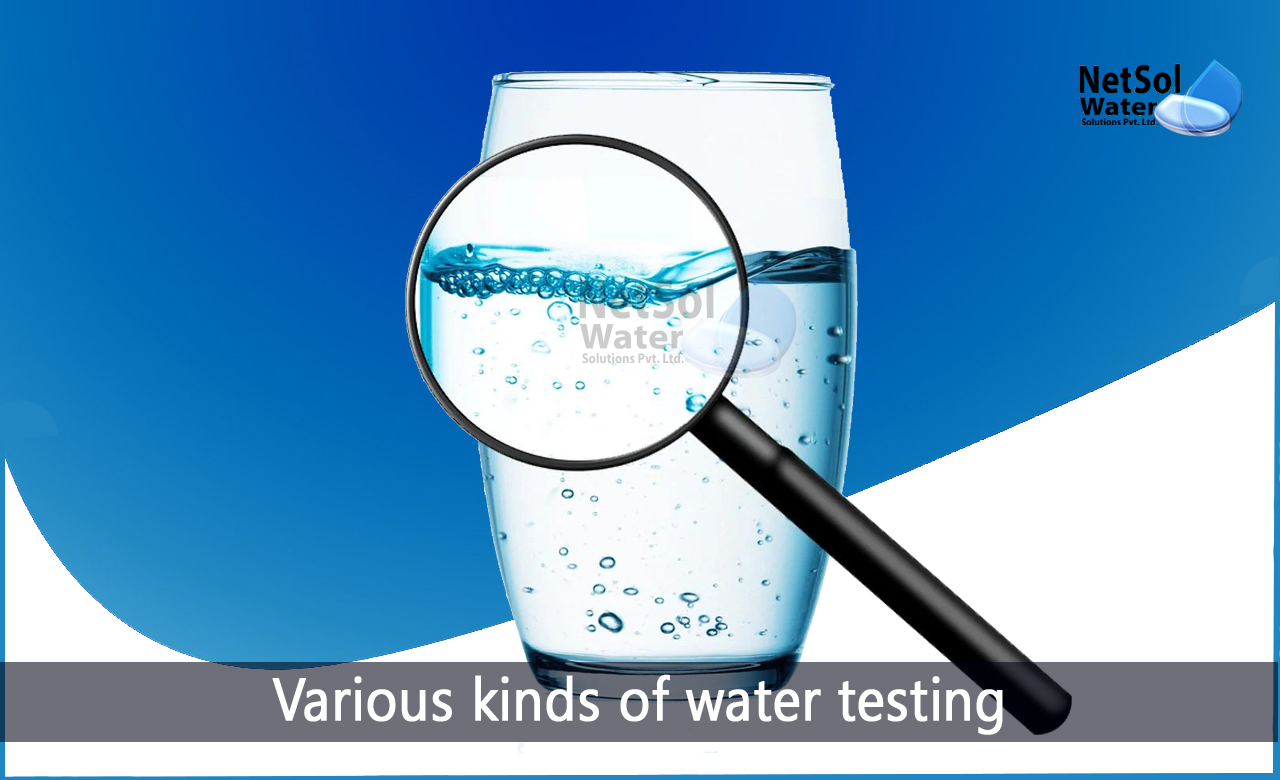To assist evaluate if water is safe or even drinkable to be used in a household setting or elsewhere, water test labs undertake a wide variety of tests on its quality.
What are the Various kinds of water testing?
These various tests assist establish whether certain substances or contaminants have contaminated a body of water, and help determine what additional treatments are necessary. Here are a few different kinds of water testing techniques.
· Test for bacteria
Water can be contaminated by a variety of bacterial pollutants. E.coli bacteria which originate from exposure to faecal matter, and can have major health consequences when swallowed, is one of the most prevalent and frequently searched for pathogens.
Testing for bacteria is necessary to determine whether water is safe to consume, or touch directly on the skin.
· Tests on Minerals
Chlorine and chloride, nitrate and nitrite, lead, copper, iron, zinc, potassium, and sodium, are a few typical and significant mineral tests.
This broad range of mineral testing is important and pertinent in determining water quality, because different geographic regions or terrain types may have more of a build-up of particular types of minerals. This information helps determine what types of mineral treatments are actually required, to purify the water.
· A pH test
The concentration of hydrogen ions in a solution is gauged by pH.
The amount of these hydrogen ions in a solution determines how acidic that solution's water is. Acidity impacts how water tastes, but it can also have an impact on how healthy it is to drink. People can get sick from drinking water that isn't neutral enough in its acidity!
Other forms of testing water
Conductivity, odour, sediment, and turbidity are some fundamental water tests, whichare independent of chemical testing. These tests produce a gauge of the more physical characteristics of a water sample, albeit they are not always applicable.
What is the most crucial test for water quality?
Drinking water quality is a sign of how fit it is for human consumption. The composition of the water, which is affected by both natural and human processes, determines its quality.
Physical, chemical, and microbiological water parameters are used to describe water quality, and human health is put in danger if values go above permissible bounds. The World Health Organization (WHO) and the Centers for Disease Control (CDC) among other organisations, establish exposure guidelines or safe limits for chemical pollutants in drinking water.
Sources of water
Water is constantly moving above, below, and on the earth's surface. Water travels through the soil and gathers up various items along the way. The quality of the water will vary from location to location, with the seasons, the different types of rock and soil it passes through, and more.
Depending on where we live in the world, drinking water can originate from a variety of sources. The following three sources are used to gather drinking water:
· Surface water,
· Groundwater,
· Rainwater.
The majority of the time only natural processes have an impact on water quality. For instance, even in the absence of pollution or human activity, water flowing through subterranean rocks and soils may pick up natural toxins.
In addition to the effects of nature, human actions such as open defecation, rubbish disposal, subpar agricultural methods, and chemical accidents at industrial locations, can contaminate water.
Factors to consider while determining drinking water quality
Even though, water may appear clear, this does not always imply that it is suitable for consumption. The following three characteristics should be taken into account when evaluating the safety of water:
· Bacteria, viruses, and protozoa are examples of biological parameters.
· Chemical parameters include metals, chemicals, and minerals.
· Physical parameters include turbidity, temperature, colour, smell, and taste.
Are you interested in analysing the quality of your drinking water, and treating it for your residential or commercial property?
Netsol Water is dedicated to offering water treatment plants, which encourage corporate growth while simultaneously safeguarding the world's most valuable resources on the Earth. We also take each step to preserve our water, air and soil from pollution, by providing advanced treatment technologies.
Further, we provide ETPs and STPs for wastewater management, RO Plants, water softeners for water treatment, and much more.
Netsol Water is Greater Noida-based leading water & wastewater treatment plant manufacturer. We are industry's most demanding company based on client review and work quality. We are known as best commercial RO plant manufacturers, industrial RO plant manufacturer, sewage treatment plant manufacturer, Water Softener Plant Manufacturers and effluent treatment plant manufacturers. Apart from this 24x7 customer support is our USP. Call on +91-9650608473, or write us at enquiry@netsolwater.com for any support, inquiry or product-purchase related query.



